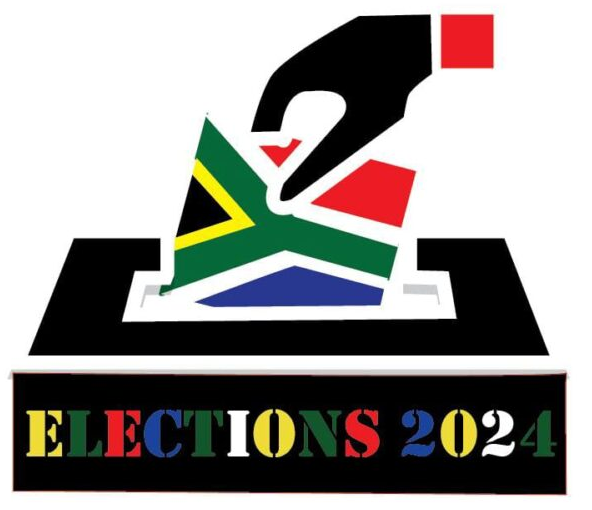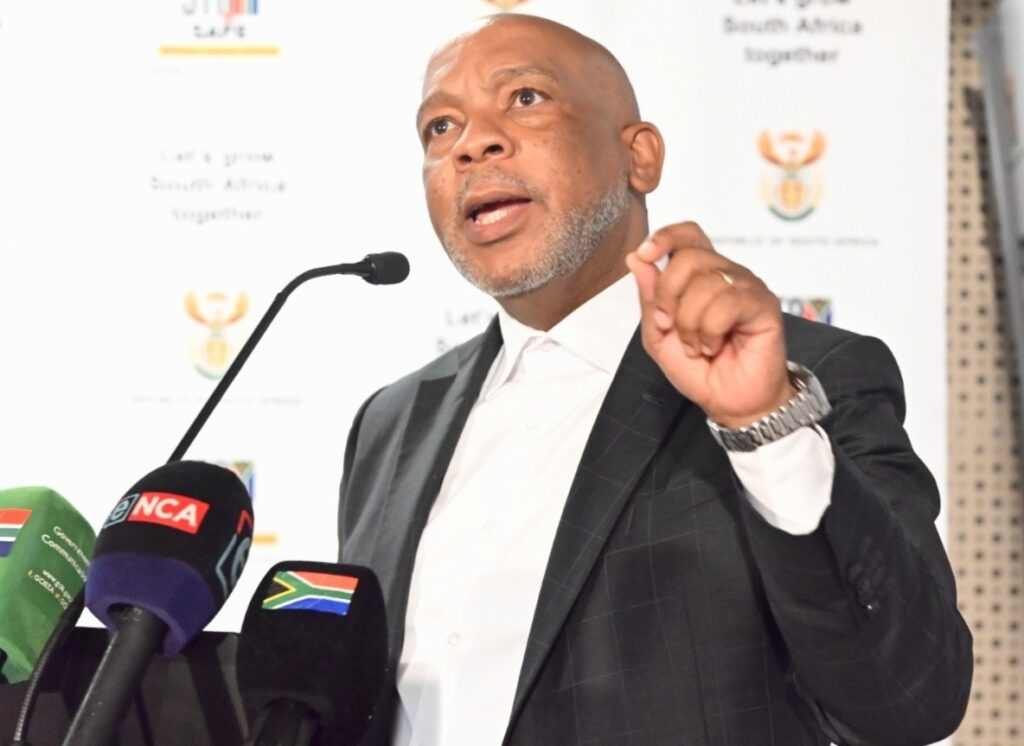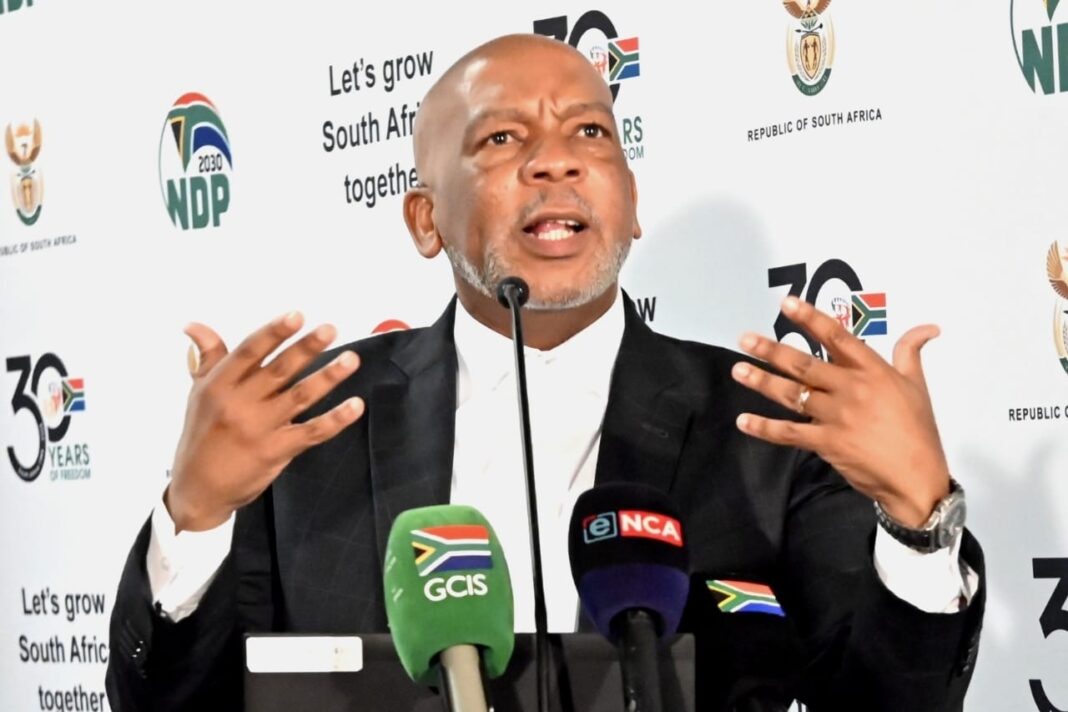Johnathan Paoli
Electricity Minister Ramokgopa has denied allegations that the current abatement in load shedding was the result of garnering support ahead of the upcoming national and provincial elections next month, saying the constant supply of electricity was due to Eskom implementing its mission to reduce and ultimately eliminate load shedding.
Ramokgopa did his regular media briefing on the implementation of the Energy Action Plan and said that Monday marks the 26th consecutive load-shedding-free day, the longest continuous stretch of no load-shedding since 10 April 2022 with a period of 28 days of no load shedding.
“One thing I can assure the South African public, is that Chairperson Mteto Nyati and the Eskom board will not do things that are political expedient and short sighted that are going to damage the SA grid and have long term implications on our ability to resolve loadshedding,” Ramokgopa said.
Opposition parties, mainly Economic Freedom Fighters (EFF) leader Julius Malema said during a media briefing last week, that loadshedding would resume abruptly after the elections, and that like the Rugby World Cup and the march organised to the Union Buildings last year, this illustrated the political manipulation of the energy crisis for political gain.
To which Ramokgopa retorted: “I appreciate that they have no knowledge or limited knowledge in relation to the performance of these complex engineering systems. This is not political football, it’s a resolution of this problem”.
Ramokgopa praised the leadership and employees of Eskom for their role in overcoming the challenges faced by the power utility and maintaining a period of no load-shedding and said that the improved performance was due to Eskom achieving planned maintenance of 12% in the current financial year, good support in renewables during the day; and the focused and disciplined execution of the Generation Operational Recovery which resulted in a 3 gigawatts decline in unplanned load losses from the 18 GW in May 2023.
The Minister said the utility’s executive management team are transfixed on the resolution of the problem as highly qualified engineers, and claimed that as professionals, the engineers of Eskom would never place their reputation at risk.

Ramokgopa described the period before the upcoming elections as a “silly season” and that members of the opposition did not have the adequate knowledge to appreciate the complexity of resolving the country’s energy crisis.
While all efforts are being geared to sustain the current performance through continuous and sustained improvements to the generation system, load shedding remains a risk, he cautioned.

From 14 December to 1 January this year ,no political concerns were raised in light of the decrease in load shedding, but due to the proximity to elections, many have made unsubstantiated claims, said Ramokgopa.
“Now all we are doing is executing the plan we have set for ourselves, and suddenly people are accusing Eskom of doing many things,” the Minister said.
The Minister said that he was appointed to ensure the reduction of the intensity and frequency of load shedding, with the ultimate goal of elimination and would do things by the book, in terms of short-term pain and long-term gain.
Furthermore, Ramokgopa ascribed the reduction in loadshedding to failures in municipal infrastructure, which reduced demand, but highlighted the need for sufficient production.
The Minister said that in relation to the excess generating capacity of renewables, he was in discussion with Eskom and the Independent Power Producers’ office to design an intervention that makes it possible for to benefit from excess generating capacity without undermining what essentially was a public process to contract the megawatts so that the process’s credibility would not be called into question by other bidders who have lost.
This should be contrasted to claims made by Mineral Resources Minister Gwede Mantashe at the ANC’s elective conference in Bloemfontein last year, that there was a deliberate attempt to maintain load shedding as part of an agenda to shift the country’s power production to renewables and the privatisation of Eskom as a national power utility.
INSIDE POLITICS

